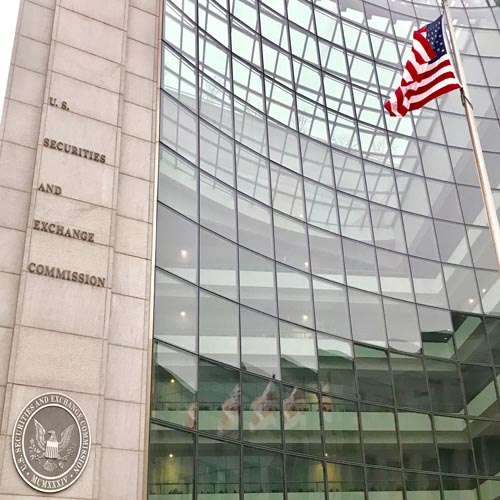From Jim Hamilton’s World of Securities Regulation, notes from the 49th Annual Securities Regulation Institute hosted by the Northwestern University Pritzker School of Law last month. One discussion, titled “Updates from SEC Senior Staff: Division of Enforcement”, touched on ESG matters. The panel was moderated by Dixie Johnson, Institute vice chair and partner at King & Spalding, and included SEC Enforcement Director Gurbir Grewal and Division of Enforcement Deputy Director Sanjay Wadhwa.
ESG. Wadhwa concurred that the bottom line is that disclosures cannot be materially false or misleading, and the SEC takes this position in both financial reporting and ESG disclosures. On ESG, Grewal said the SEC is not waiting for new rules. The SEC has brought cases touching on ESG well before the last year or two. The SEC uses traditional tools to ensure that statements are not materially misleading, that they are accurate, and that fiduciary duty principles are complied with, depending on who is making the statement.
Johnson asked how the SEC is approaching statements about ESG that may be made via less formal communications like brochures and company websites. Wadhwa said the SEC looks at the whole picture and is not looking to take obscure statements out of context. Rather, the focus is on what was behind putting the information out there.
What This Means
It is clear the SEC is actively looking at ESG claims across a range of public venues to get “the whole picture.” In 2021, we wrote about sustainability statements in an IPO prospectus that were walked back and last week, mentioned SEC’s $125 million fine against a company for public statements made in speeches and tweets by the now-former CEO about sustainability-based product claims that had not been validated and were determined by the SEC to be fraudulent. SEC’s comment letters on climate disclosures state they are comparing multiple sources that present information about a company’s climate risk, status and action.
SEC staff is confirming by their actions and statements that they are using existing enforcement powers for ESG and looking at “less formal communications.” Company executives, management and staff may need to be made aware of SEC’s scrutiny of information communications venues and to take this seriously. Don’t let informal communications venues – especially social media – escape reviews concerning ESG/sustainability claims. It would even be prudent to add sustainability/ESG topics and sensitivity to your internal training program on communications and media relations.










